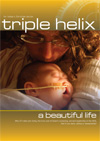Renewed pressure to change the law must be resisted
Review by Peter Saunders CMF Chief Executive
The relentless pressure to legalise assisted suicide and euthanasia continues unabated in Britain. The Court of Appeal hearing of two cases of locked-in syndrome (Nicklinson and 'Martin') on 13- 16 May was joined by a third appellant Paul Lamb, a 57 year old man with quadriplegia, who has taken Tony Nicklinson's place after the latter died last year. (1)
Nicklinson's widow argued that her husband being denied an 'assisted death' interfered with her right to a private life under the European Convention on Human Rights article 8. Lamb similarly used article 8 arguments but also argued that the legal principle of 'necessity' should allow a doctor to end his life without fear of prosecution for murder.
'Martin' also argued under article 8 asking the Director of Public Prosecutions (DPP), the Solicitor's Regulatory Authority and the General Medical Council to make clear in advance the extent to which solicitors and doctors could assist his suicide.
The judgment is still awaited at the time of writing but if any of these appeals are successful the case will go back to the High Court for consideration of more detailed evidence.
Lord Falconer introduced his new 'assisted dying bill' into the House of Lords on 15 May with a second reading (debate stage) expected to take place in October. 2 It seeks to legalise assisted suicide (but not euthanasia) for mentally competent adults with less than six months to live and uses a 'two doctors' signature' model similar to the Abortion Act 1967. The aim is to medicalise assisted suicide, making it a standard healthcare option.
Margo MacDonald MSP has published the results of her new consultation aimed at legalising assisted suicide in Scotland and has obtained the necessary 18 signatures that she requires to take a bill forward. She has announced that she plans to introduce it into the Scottish Parliament in the summer.
Alongside these moves, the Royal College of General Practitioners (RCGP) is consulting its members about whether it should abandon its long opposition to a change in the law and adopt a neutral stance. (3) The inquiry closes on 9 October.
The voices of three key groups – doctors, disabled people and faith communities – will be crucial in countering the encroachment of this culture of death. In particular, Christian doctors, as key advocates for those who are sick or disabled, will continue to have a huge role to play.
































